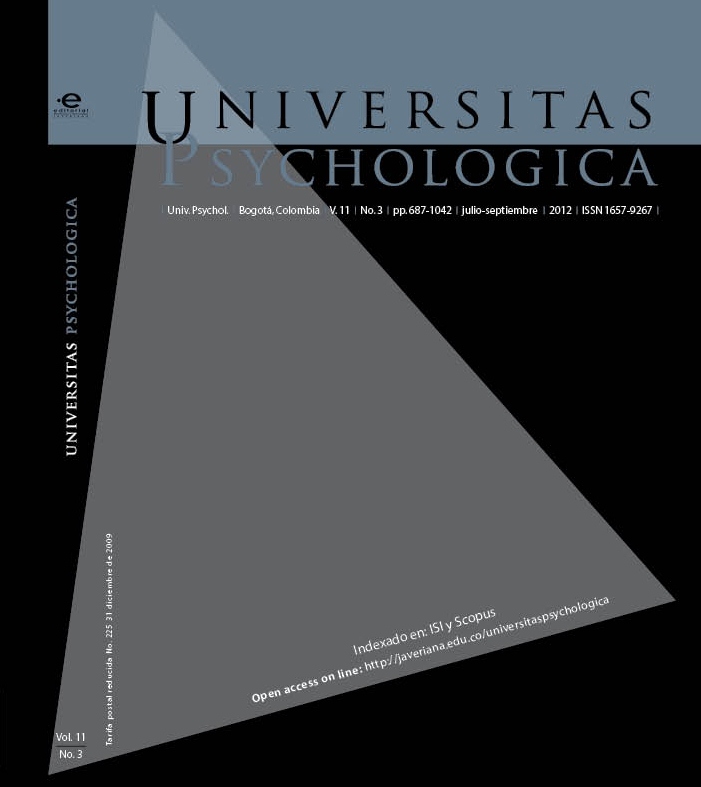Abstract
The aim of this study was to evaluate the psychometric properties of Spanish version of the Interpersonal Support Evaluation List-ISEL which was built in its original version by Cohen and Wills (1985). The ISEL assesses the perceived availability of four different aspects of social support, in addition to providing a general measure of social support. The questionnaire consists of four sub-scales (self-esteem, information, membership and instrumental). Each sub-scale consists of 10 items. After a rigorous translation process to produce the Spanish version of the ISEL, we examined the equivalence of the translated version into Spanish for the total scale and each sub-scale in a sample of Spanish university students (N = 441). We obtained an alpha value for the first administration of 0.888 and 0.87 for the second. The test-retest reliability was r = 0.787. It was found that the factor structure would be essentially onedimensional after exploratory factor analysis with Varimax rotation. In addition, convergent validity was assessed with the Loneliness Scale (r = -0.692, p < 0.001), the Perceived Self-Efficacy Questionnaire (r = 0.712, p < 0.001), the General Health Questionnaire (r = -0.422, p = 0.001) and the Perceived Stress Scale (r = -0.400, p = 0.002). The results could show that the Spanish version of the ISEL can be used with sufficient psychometric guarantees in a population of Spanishspeaking university students.
This journal is registered under a Creative Commons Attribution 4.0 International Public License. Thus, this work may be reproduced, distributed, and publicly shared in digital format, as long as the names of the authors and Pontificia Universidad Javeriana are acknowledged. Others are allowed to quote, adapt, transform, auto-archive, republish, and create based on this material, for any purpose (even commercial ones), provided the authorship is duly acknowledged, a link to the original work is provided, and it is specified if changes have been made. Pontificia Universidad Javeriana does not hold the rights of published works and the authors are solely responsible for the contents of their works; they keep the moral, intellectual, privacy, and publicity rights. Approving the intervention of the work (review, copy-editing, translation, layout) and the following outreach, are granted through an use license and not through an assignment of rights. This means the journal and Pontificia Universidad Javeriana cannot be held responsible for any ethical malpractice by the authors. As a consequence of the protection granted by the use license, the journal is not required to publish recantations or modify information already published, unless the errata stems from the editorial management process. Publishing contents in this journal does not generate royalties for contributors.


